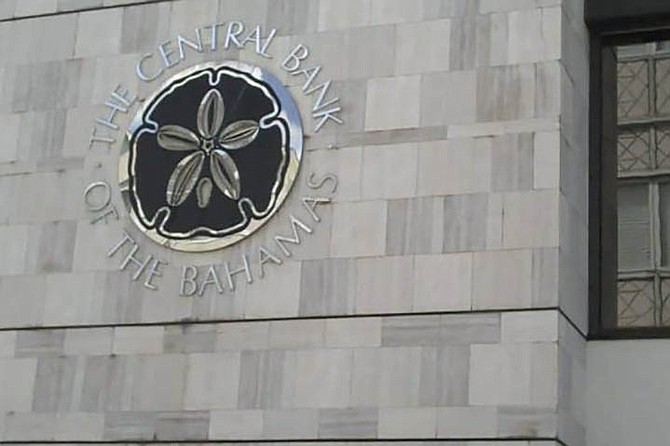By NEIL HARTNELL
Tribune Business Editor
nhartnell@tribunemedia.net
Domestic banks and trust companies endured a near-ten percent operating cost increase in 2018 amid continued expense and regulatory pressures on the wider financial services industry.
The Central Bank’s survey of the sector’s 2018 contribution to Bahamian GDP, released earlier this week, revealed that wage pressures, government taxes and non-staff administrative costs drove a 9.7 percent rise in the domestic sector’s costs to almost $500m.
“Domestic banks and trusts companies’ total expenditure rose by ten percent to $511.1m in 2018, exceeding the 1.3 percent uptick recorded a year earlier and the average gain of 3.1 percent over the last five years,” the Central Bank said.
“Underpinning this development, total operational costs - which accounted for 97 percent of the total - expanded by 9.7 percent to $495.9m, outstripping the 1.7 percent increase in the prior year. This outcome reflected an 11.5 percent rise in other non-staff administrative costs to $234.1m, following a two percent gain recorded in the preceding year.
“In addition, salary outlays advanced by 7.2 percent to $196m, extending the previous year’s 2.3 percent advance, as both base salaries and bonuses registered growth of 7.8 percent and 0.8 percent, respectively. Further, Government fee payments, inclusive of license fees, work permits and ‘other’ taxable inputs, grew by 10.9 percent to $63.7m, a reversal from a slight 0.4 percent fall-off in 2017.”
As for the financial services industry’s international segment, the Central Bank said that despite closures and the outsourcing of back office functions, total spending increased by 1.3 percent to $249m in 2018. This partially reversed the 9.3 percent fall-off witnessed during the prior year.
“Underlying this outturn was a nearly three-fold increase in capital spending to $10.2m from $3m following a significant 59.3 percent decline a year earlier,” the Central Bank said. “In contrast, operational outlays, which comprised 95.9 percent of total expenditure, contracted by 1.6 percent to $238.8m, although lower than the 7.9 percent decrease in 2017.
“In particular, salary payments fell by 5.5 percent to $133.7m as the 8.7 percent reduction in base salaries outweighed the 3.6 percent uptick in bonuses. Government fee payments also decreased by 5.6 percent to $9.2m following a 13.5 percent contraction recorded a year earlier.
“Providing some offset, other administrative costs moved higher by 4.9 percent to $95m, a reversal from a 12.2 percent reduction in 2017. In addition, outlays for staff training grew marginally by 0.4 percent after a 6 percent fall-off in the prior year.”
Average salaries paid by the international banks increased by an estimated $5,218 or 4.9 percent to $111,129 in 2018, which the Central Bank said was due mainly to “a decline in lower paid administrative-related staff”. Average salaries at domestic banks firmed by $3,261 or 6.2 percent to $56,289 per year.
Painting a bleak picture of the financial services industry’s near-term growth opportunities, the Central Bank survey added that its findings “continued to underscore the fact that the sector is in the midst of adjustment to economic and regulatory forces”.
It said: “Cost considerations and weak credit market conditions continue to contain the operating prospects for the domestic sector. For international businesses, the response to tax transparency requirements has exacerbated operating cost pressures, culminating in both the repositioning of business outside the jurisdiction and significant outsourcing of support for the remaining operations.
“In this regard, The Bahamas continued to experience employment retrenchment in international banking, notwithstanding an increasing expenditure footing for domestic banking....The corporate and financial services is also facing adjustments, as The Bahamas transitions to enhanced international transparency around the use of international business companies (IBCs).”
Looking ahead, the Central Bank said: “Near to medium-term prospects for the financial services sector’s contribution to the economy remain contingent on strengthening the competitive profile of the sector. For some business models, this has meant increasing the attention on markets outside of the major industrial countries, with strengthened focus on attracting tax compliant clientele.”





Comments
Use the comment form below to begin a discussion about this content.
Sign in to comment
OpenID